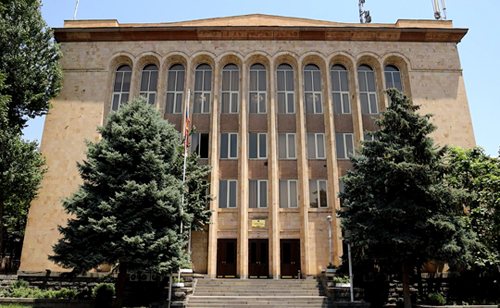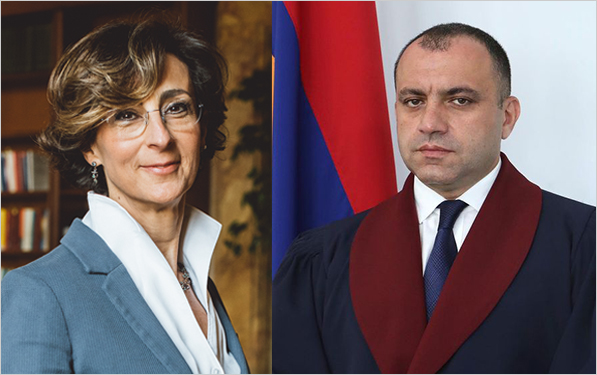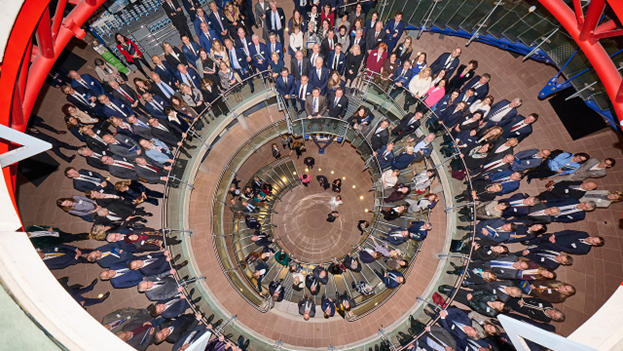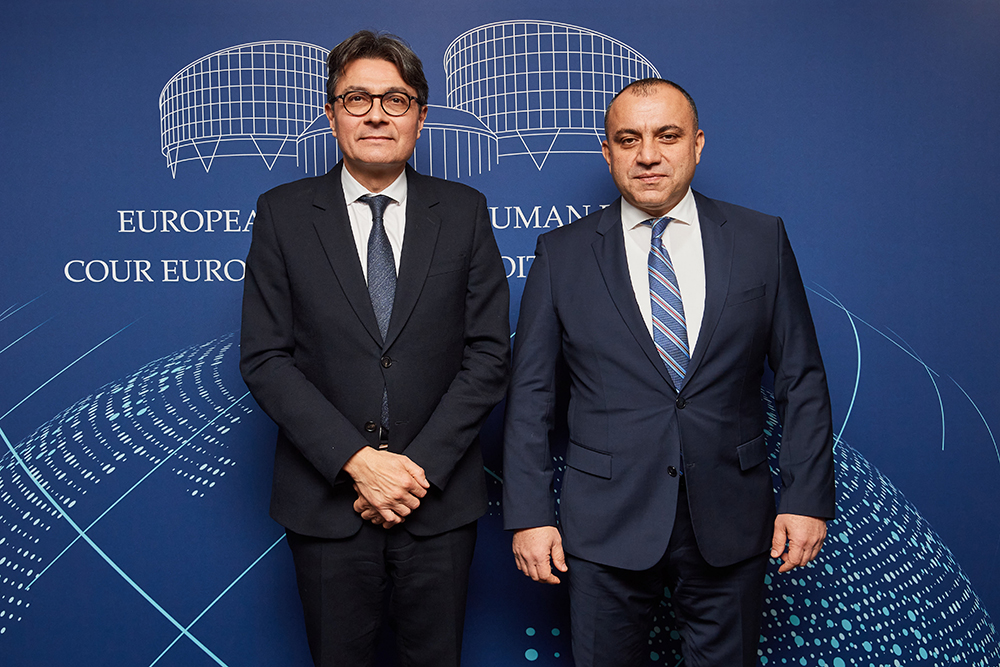
PRESS RELEASE OF THE RA CONSTITUTIONAL COURT PRESS SERVICE
Through various news agencies, based on the advice of so called “authoritative lawyers’’, information was circulated, that the RA Constitutional Court in the scope of its powers prescribed by Article 100 of the Constitution, can examine any case, regardless whether the applicant is a subject in accordance with Article 101 of the Constitution, or not.
Such “interpretation” is simply disinformation.
We inform the public, that:
First, Article 100 of the RA Constitution prescribes the powers of the Constitutional Court, which, according to the same article, are exercised in conformity with the procedure defined by law.
Particularly, in Clause 3 of Article 100 of the RA Constitution it is prescribed that, the Constitutional Court (in conformity with the procedure defined by law) resolves all disputes arising from the outcomes of referenda.
Second, in Clause 2 of Article 101 of the RA Constitution it is prescribed the scope of applicants-subjects, who may apply to the Constitutional Court in conformity with the procedure prescribed in the Constitution and in the RA Law on the Constitutional Court.
Particularly in Part 1 of Article 101 of the RA Constitution it is prescribed, that in conformity with the procedure set forth in the Constitution and the law on the Constitutional Court the application to the Constitutional Court may be filed by at least one-fifth of the total number of the Deputies - in cases stipulated in Clause 1 of Article 100 of the Constitution (Clause 3).
Third, Article 94 of the RA Constitution prescribes, that the procedure for the activities of the Constitutional Court shall be defined by the Constitution and the Law on the Constitutional Court.
Fourth, in Article 25 (The right to apply to the Constitutional Court) of RA Law “On the Constitutional Court’’ it is prescribed that, “The bodies and persons determined by Article 101 of the Constitution shall appeal to the Constitutional Court in the order prescribed by the Constitution and this Law…”.
Fifth, Part 2 of Article 101 of the RA Constitution and Article 26 of the RA Law “On the Constitutional Court’’ prescribe that, “The Constitutional Court shall start proceedings only upon the receipt of a relevant application”.
Sixth, Article 110.1 of the RA Law on “Rules of Procedure of the National Assembly” (The procedure for applying to the Constitutional Court in the cases foreseen by paragraphs 1 and 3 of article 100 of the Constitution) prescribes that.
“1. In accordance with Clause 3 of Article 101 of the Constitution, at least one fifth of Deputies may apply to the Constitutional Court in the cases foreseen by Clauses 1 and 3 of Article 100 of the Constitution.
2. The Deputies’ initiative to apply to the Constitutional Court on issues foreseen by Clauses 1 and 3 of Article 100 of the Constitution is exercised through signing the form received from the staff and submitting it to the Chairperson of the National Assembly. If the form is submitted to the Chairperson of the National Assembly with the signatures of at least one fifth of the overall number of Deputies then s/he sends the application with the form to the Constitutional Court within 24 hours, following which the form may not be changed.’’.
News

3 February 2026
THE PRESIDENT OF THE CONSTITUTIONAL COURT OF THE REPUBLIC OF ARMENIA MET WITH THE DIRECTOR OF HUMAN RIGHTS OF THE COUNCIL OF EUROPE

3 February 2026
THE PRESIDENT OF THE CONSTITUTIONAL COURT OF THE REPUBLIC OF ARMENIA MET WITH THE PRESIDENT OF THE VENICE COMMISSION

2 February 2026
THE PRESIDENT OF THE CONSTITUTIONAL COURT PARTICIPATED IN THE OPENING OF THE JUDICIAL YEAR OF THE EUROPEAN COURT OF HUMAN RIGHTS IN STRASBOURG

2 February 2026
MEETING OF THE PRESIDENT OF THE CONSTITUTIONAL COURT OF THE REPUBLIC OF ARMENIA AND THE PRESIDENT OF THE EUROPEAN COURT OF HUMAN RIGHTS IN STRASBOURG

20 January 2026
THE ROLE OF STATE AUTHORITIES AND CIVIL SOCIETY IN THE IMPLEMENTATION OF THE DECISIONS OF THE CONSTITUTIONAL COURT

The website of the Constitutional Court of the Republic of Armenia has been created as part of the Partnership for Good Governance (PGG II) Project ''Support to the judicial reform – enhancing the independence and professionalism of the judiciary in Armenia'' co-funded by the European Union and the Council of Europe. The views expressed herein can in no way be taken to reflect the official opinion of either party.

The upgrade of the official website of the Constitutional Court of the Republic of Armenia is made possible by the support of the American People through the United States Agency for International Development (USAID) as a part of the USAID/Armenia Justice Sector Support Project. The content of this website is the sole responsibility of the Constitutional Court and does not necessarily reflect the views of USAID or the United States Government.




